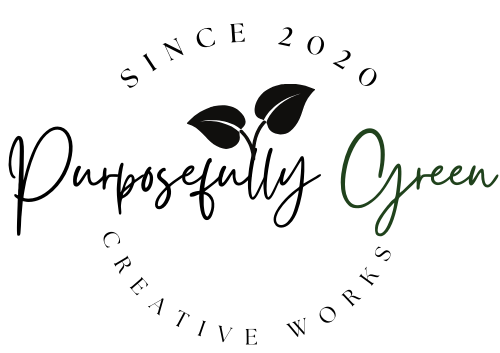Are you tired of being caught in the cycle of emotional eating? Do you want to develop a healthy relationship with food and gain true food freedom? You’re not alone. Many people struggle with emotional eating, but there are strategies and mindset shifts that can help you break free.
Key Takeaways:
- Recognize that emotional eating is a common struggle and that you can overcome it.
- Address the underlying emotional issues that drive your eating habits.
- Develop self-compassion and resilience as you navigate your journey to food freedom.
- Consider joining a supportive program or seeking professional help to guide your recovery.
- Believe in yourself and your ability to change.
My Journey to Food Freedom
In my own personal journey, I struggled with **overcoming emotional eating**, constantly counting calories and obsessing over food. However, I discovered that true food freedom comes from addressing the underlying issues and developing a **healthy relationship with food**. It’s not just about the food, but about understanding and working through the emotions that drive our eating habits.
During my journey, I realized that emotional eating was a coping mechanism for dealing with stress, boredom, and other challenging emotions. This unhealthy relationship with food was taking a toll on my physical and mental well-being. I knew I had to make a change.
I started by seeking professional help and working with a therapist who specialized in **emotional eating and binge eating**. Together, we explored the root causes of my emotional eating and developed strategies to overcome it. I learned to identify my triggers and find healthier ways to cope with my emotions.
Another important aspect of my journey was adopting a more mindful approach to eating. I began to listen to my body’s hunger and fullness cues, rather than relying on external cues such as calorie counting or strict diets. This allowed me to reconnect with my body’s needs and develop a more intuitive relationship with food.
“True food freedom comes from addressing the underlying issues and developing a healthy relationship with food.”
Developing a support system was also crucial in my journey to food freedom. I joined a support group where I could connect with others who were facing similar challenges. It was incredibly comforting to share my experiences, learn from others, and receive encouragement and support along the way.
Over time, as I implemented these strategies and developed a healthier relationship with food, I began to see positive changes in my life. I no longer felt controlled by my cravings or emotions. I discovered the joy of nourishing my body with wholesome, nutritious foods that truly made me feel good.
My journey to food freedom was not always easy, and there were moments of setbacks and challenges. But through perseverance and self-compassion, I was able to overcome emotional eating and develop a healthier relationship with food.
Today, I am grateful for the lessons I’ve learned and the transformation I’ve experienced. Overcoming emotional eating has not only improved my physical health but has also significantly enhanced my mental well-being and overall quality of life.

The Food Freedom Journey Program
The Food Freedom Journey program is designed to support individuals in overcoming their struggle with food and body. It offers a comprehensive curriculum that covers various topics, including breathwork to heal emotional eating, body acceptance, releasing stories and identities, trust with food, and more. This program has helped thousands of women break free from food addiction and develop sustainable strategies for food freedom.
If you’re ready to embark on a transformative journey towards food addiction recovery and reclaim your freedom, the Food Freedom Journey program is here to guide and support you every step of the way.

Key Features of the Food Freedom Journey Program:
- Comprehensive curriculum covering various topics related to food addiction recovery
- Expert guidance and support from experienced professionals
- Practical strategies for developing a healthy relationship with food
- Breathwork exercises to heal emotional eating
- Body acceptance and positive self-image practices
- Transformational mindset shifts to break free from food addiction
By enrolling in the Food Freedom Journey program, you’ll gain valuable insights, practical tools, and the support of a community of like-minded individuals who are on the same path towards food freedom. You’ll learn how to overcome cravings, manage emotional triggers, and cultivate a mindset that empowers you to make nourishing choices.
“The Food Freedom Journey program has been a game-changer for me. It provided me with the knowledge, tools, and support I needed to break free from my unhealthy relationship with food. I finally feel in control and have developed sustainable strategies for food freedom.” – Sarah
Don’t let food addiction hold you back any longer. Take the first step towards reclaiming your freedom and join the Food Freedom Journey program today!
Overcoming Emotional Eating: Three Steps
Overcoming emotional eating requires a proactive approach. Here are three steps that can help you break the cycle of emotional eating:
- Sit with your emotions: Take time to understand and acknowledge your feelings instead of turning to food. Journaling can be a helpful tool in this process.
- Create a plan to address underlying issues: Identify the root causes of your emotional eating and develop a plan to overcome them. This may involve seeking professional help, setting goals, or making lifestyle changes.
- Embrace self-compassion and resilience: Understand that overcoming emotional eating is a journey and that setbacks may occur. Show yourself kindness and learn from each experience to build resilience.

Why Sit with Your Emotions?
“By taking the time to sit with our emotions, we allow ourselves to truly understand them and address their underlying causes. This practice helps break the automatic association between emotions and food, empowering us to make healthier choices.”
– Dr. Anna Thompson, Psychologist
Developing a Plan to Address Underlying Issues
Creating a plan to address the root causes of emotional eating is essential for long-term success. Here are some steps to consider:
- Identify triggers: Pay attention to the situations, people, or emotions that often lead to emotional eating. Awareness is the first step towards change.
- Seek professional help: If you’re struggling to identify or address underlying issues, consider seeking support from a therapist, counselor, or registered dietitian specializing in emotional eating.
- Set realistic goals: Break down your goals into small, achievable steps. This will help you stay motivated and track your progress.
- Make lifestyle changes: Implement healthy habits such as regular exercise, stress management techniques, and mindful eating practices. These changes can have a profound impact on your emotional well-being and relationship with food.
Embracing Self-Compassion and Resilience
“Remember, breaking the cycle of emotional eating is a journey, not a destination. It’s important to be kind to yourself and embrace resilience. Each setback is an opportunity for growth and learning.”
– Samantha Davis, Certified Life Coach
Developing self-compassion allows you to approach your journey with kindness and forgiveness. Remember that setbacks are a natural part of the process. Learn from each experience, adjust your strategies, and continue moving forward.
By following these three steps and staying committed to your journey, you can overcome emotional eating and achieve long-lasting food freedom.
Join the Food Freedom Group Coaching Program
If you’re looking to overcome emotional eating and develop a healthy relationship with food, the Food Freedom Group Coaching Program is here to support you. Led by a Registered Dietitian and Certified Intuitive Eating Counselor, this program offers a highly supportive group coaching experience where you can find guidance, tools, and actionable steps to end the diet-binge cycle.
By joining this program, you’ll become part of a community of like-minded individuals on a similar journey towards food freedom. You’ll benefit from the camaraderie and support of others who understand your struggles and can provide the encouragement you need.
The Food Freedom Group Coaching Program incorporates mindful eating practices and focuses on food addiction recovery. Through a combination of group coaching sessions, educational resources, and practical exercises, you’ll learn how to overcome emotional eating patterns, make peace with food, and listen to your body’s cues.
Take a step towards reclaiming your relationship with food and join the Food Freedom Group Coaching Program today.
| Program Features | Benefits |
|---|---|
| Group coaching sessions | – Receive personalized guidance and support from experts in the field |
| Educational resources | – Gain knowledge and insights to help you on your journey towards food freedom |
| Actionable steps | – Learn practical strategies and techniques to overcome emotional eating |
| Mindful eating practices | – Develop a healthier relationship with food and your body |
| Supportive community | – Connect with like-minded individuals and find encouragement along the way |
Testimonials:
“Joining the Food Freedom Group Coaching Program was a game-changer for me. The support and guidance I received helped me break free from my food addiction and discover a whole new way of nourishing my body. I’m forever grateful for this program!”
– Emma Thompson
“The Food Freedom Group Coaching Program provided me with the tools and resources to develop mindful eating practices and overcome my emotional eating habits. Being part of a supportive community made all the difference. I highly recommend this program to anyone struggling with food addiction recovery.”
– Mark Johnson
This section provides information about the Food Freedom Group Coaching Program, emphasizing its role in mindful eating practices and food addiction recovery. It highlights the benefits of joining the program, such as personalized guidance, educational resources, actionable steps, and a supportive community. The testimonials from program participants further reinforce the effectiveness of the program in helping individuals overcome emotional eating habits. The image in the center complements the text, visually representing the concept of mindful eating.
Testimonials from Food Freedom Program Participants
Participants of the Food Freedom Group Coaching Program have shared their inspiring experiences and the positive impact it has had on their journey towards food freedom and recovery from food addiction.
“The Food Freedom Program has been life-changing for me. I used to feel so guilty and out of control around food, but now I can have an evening snack without it turning into a binge. I’ve learned to trust myself and my body’s signals, and it’s incredibly empowering.”
“Joining the Food Freedom Program was one of the best decisions I’ve made for myself. Not only have I gained freedom from food restrictions, but I have also gained brain space to focus on what truly brings me joy. It’s amazing how letting go of the diet mentality has opened up so many possibilities in my life.”
Developing a Healthy Relationship with Food
Through the program, participants have developed a healthy relationship with food and a deeper understanding of their emotional triggers. By embracing self-compassion and trust in their body’s inner wisdom, they have achieved a sense of peace and harmony with food and their bodies.
- Complete trust in themselves around food
- Fostered self-compassion
- Feel at peace with their bodies
The testimonials highlight the transformative power of the Food Freedom Program in helping individuals break free from food addiction and develop sustainable strategies for food freedom.

These inspiring stories serve as a testament to the effectiveness of the program in enabling participants to reclaim their lives and find lasting freedom from the grasp of food addiction. By addressing the underlying emotional issues and implementing the strategies learned in the program, individuals can navigate the complexities of their relationship with food and pave the way towards a healthier, happier future.
The Benefits of Achieving Food Freedom
Achieving food freedom offers numerous benefits beyond a healthier relationship with food. When we break the cycle of emotional eating and develop a sustainable and healthy approach to our meals, we unlock a world of positive outcomes. Here are some of the key benefits:
1. Enjoying an evening snack without turning it into a binge
Food freedom empowers us to have a snack in the evening without it spiraling into a binge session. We learn to honor our cravings and enjoy treats in moderation, savoring every bite without guilt or overindulgence. This newfound balance allows us to have a healthy and sustainable relationship with food.
2. Gaining the brain space to focus on what brings us joy
When we no longer obsess over food and our eating habits, we free up valuable mental and emotional energy. This newfound mental clarity and freedom allow us to redirect our focus towards what truly brings us joy, whether it’s our hobbies, passions, or spending quality time with loved ones.
3. Developing a complete trust in ourselves around food
Food freedom helps us establish a deep sense of trust in ourselves and our ability to make decisions about what we eat. We become attuned to our bodies’ signals and learn to differentiate between true hunger and emotional triggers. This self-trust empowers us to make food choices that nourish and support our well-being.
4. Making food decisions with ease
With a healthy relationship with food, we no longer feel overwhelmed or stressed when making food decisions. We develop a solid foundation of knowledge about our nutritional needs and personal preferences. As a result, we can approach meal planning, grocery shopping, and dining out with ease, ensuring that our choices align with our overall health goals.
5. Nourishing ourselves in a way that feels good
Food freedom allows us to nourish ourselves in a way that feels good both physically and emotionally. We let go of strict diet rules and embrace a flexible and intuitive approach to eating. We learn to listen to our bodies’ cues, enjoying a wide variety of foods that provide us with the nutrients and satisfaction we need to thrive.
6. Being present and enjoying food without guilt in social gatherings
When we achieve food freedom, social gatherings and special occasions no longer come with feelings of guilt and anxiety. We can fully enjoy the experience of sharing meals with others, savoring the flavors and connections without the burden of restrictive thoughts. This newfound freedom allows us to be fully present and engage in the joy of communal eating.
By breaking the cycle of emotional eating and developing a healthy relationship with food, we unlock these and many other benefits. Food freedom is not just about what we eat; it’s about nourishing our bodies, minds, and souls in a way that supports our overall well-being.
| Benefits of Achieving Food Freedom |
|---|
| 1. Enjoying an evening snack without turning it into a binge |
| 2. Gaining the brain space to focus on what brings us joy |
| 3. Developing a complete trust in ourselves around food |
| 4. Making food decisions with ease |
| 5. Nourishing ourselves in a way that feels good |
| 6. Being present and enjoying food without guilt in social gatherings |
The Freedom Method: A Path to Food Freedom
When it comes to breaking the cycle of emotional eating and achieving food freedom, the Freedom Method is a proven step-by-step approach that can guide you on your journey. This method focuses on empowering individuals to overcome emotional eating habits and develop a healthy relationship with food.
The foundation of the Freedom Method is built upon self-love and trusting your intuition. By cultivating a strong sense of self-love and acceptance, you can begin to heal the emotional wounds that often drive us to seek solace in food. Trusting your intuition allows you to listen to your body’s signals and make nourishing choices that align with your true needs.
One powerful aspect of the Freedom Method is the integration of breathwork to heal emotional eating. Breathwork techniques are used to connect with and release stagnant emotions, promoting a greater sense of emotional well-being and reducing the urge to turn to food for comfort.
“The Freedom Method has taught me to love and trust myself again. With each breath, I let go of the emotions that once held me captive, and I am reclaiming my power over food.”
In addition, the Freedom Method emphasizes the importance of healing and connecting with your inner child. By acknowledging and addressing past traumas and emotional wounds, you can begin to break free from the stories and identities that have kept you trapped in the cycle of emotional eating.
Establishing trust with food is another key component of the Freedom Method. Through mindful eating practices and self-compassion, you can develop a healthy relationship with food that is based on nourishment and enjoyment rather than restriction or guilt.
By following the Freedom Method, individuals can break free from the cycle of emotional eating and live a life free from food restrictions. It offers a comprehensive approach that addresses the underlying emotional factors while providing practical strategies for long-term success.
The Four Pillars of the Freedom Method
| Pillar | Description |
|---|---|
| Self-Love | Fostering a deep sense of love and acceptance for yourself, enabling healing and growth. |
| Trusting your Intuition | Listening to your body’s signals and making nourishing choices based on your true needs. |
| Integrating Breathwork | Using breathwork techniques to heal and release stagnant emotions associated with emotional eating. |
| Healing and Releasing Stories | Addressing and healing past traumas and emotional wounds to break free from the stories and identities that perpetuate emotional eating. |
The Freedom Method provides a comprehensive framework for achieving food freedom and breaking the cycle of emotional eating. It empowers individuals to transform their relationship with food, cultivate self-compassion, and live a life of freedom, balance, and joy.
Embodied Food Freedom: Reclaiming Peace with Food
Embodied Food Freedom is a transformative coaching program designed to help individuals break free from the cycle of emotional eating and reclaim peace with food. Led by an experienced coach who has walked the same path, this program offers tailored guidance and unwavering support to those seeking to improve their relationship with food and cultivate sustainable strategies for food freedom.
Through personalized coaching sessions, participants are empowered to explore the underlying emotional triggers and develop a deeper understanding of their relationship with food. The program provides a safe space to address the root causes of emotional eating, offering practical tools and evidence-based strategies to overcome binge eating and develop a healthier mindset around food.
Group support is a key component of the Embodied Food Freedom program, as the power of shared experiences and the encouragement of peers can provide invaluable insights and inspiration. Participants have the opportunity to connect with like-minded individuals, fostering a sense of community and understanding throughout their journey towards food freedom.
In addition to coaching sessions and group support, the program also offers educational resources to empower participants with knowledge and understanding. Topics such as joyful movement, gentle nutrition, and self-expression are explored, providing a holistic approach to cultivating a healthy relationship with food and self.
By embracing the principles of Embodied Food Freedom, participants not only break free from the cycle of emotional eating but also rediscover their self-worth and confidence. The program encourages individuals to celebrate their bodies and nourish themselves in a way that feels good, allowing them to experience true freedom and joy in their relationship with food.
Conclusion
Breaking free from the cycle of emotional eating and achieving sustainable food freedom requires dedication, commitment, and self-compassion. By implementing effective strategies for food freedom, participating in supportive programs, and addressing the underlying emotional issues, individuals can reclaim a healthy relationship with food.
Sustainable tips such as sitting with emotions, creating a plan to address root causes, and embracing self-compassion and resilience are fundamental in breaking the cycle of emotional eating. These steps allow individuals to understand and acknowledge their feelings without turning to food, develop a plan to overcome emotional triggers, and foster self-love and resilience throughout the journey.
It is important to remember that achieving food freedom is within reach for anyone who is willing to take the necessary steps and believe in their own ability to change. By following these strategies and maintaining a positive mindset, individuals can overcome emotional eating habits, develop a healthier relationship with food, and experience the freedom to nourish themselves both physically and emotionally.
FAQ
What is emotional eating?
Emotional eating refers to the habit of using food as a coping mechanism for dealing with emotions, such as stress, sadness, or boredom. It involves consuming food without physical hunger and often leads to feelings of guilt, shame, and loss of control.
Can emotional eating be overcome?
Yes, emotional eating can be overcome with the right strategies and mindset. By addressing and working through the underlying emotional issues, developing mindful eating practices, and seeking support from professionals and programs, it is possible to break the cycle of emotional eating and achieve food freedom.
How can I break the cycle of emotional eating?
Breaking the cycle of emotional eating involves various steps, such as acknowledging and understanding your emotions, addressing the underlying issues, and cultivating self-compassion. Additionally, developing a healthy relationship with food through mindful eating practices, seeking professional help, and joining supportive programs can aid in overcoming emotional eating habits.
What is the Food Freedom Journey Program?
The Food Freedom Journey Program is a comprehensive curriculum designed to support individuals in overcoming their struggle with food and body. It covers various topics, including breathwork to heal emotional eating, body acceptance, releasing stories and identities, trust with food, and more. This program aims to help individuals break free from food addiction and develop sustainable strategies for food freedom.
How can the Food Freedom Group Coaching Program help me?
The Food Freedom Group Coaching Program provides a highly supportive group coaching experience for individuals looking to overcome emotional eating. Led by a Registered Dietitian and Certified Intuitive Eating Counselor, the program offers guidance, tools, and action steps to end the diet-binge cycle and develop a healthy relationship with food. Participants benefit from the camaraderie and support of like-minded individuals on a similar journey towards food freedom.
What are some benefits of achieving food freedom?
Achieving food freedom offers several benefits, including the ability to have an evening snack without it turning into a binge, gaining brain space to focus on what truly brings joy, and developing a complete trust in oneself around food. Food freedom also provides the confidence to make food decisions with ease, nourish oneself in a way that feels good, and enjoy food without guilt in social gatherings.
What is the Freedom Method?
The Freedom Method is a proven step-by-step approach that helps individuals overcome emotional eating and achieve food freedom. It focuses on building a strong foundation of self-love, trusting one’s intuition, and integrating breathwork to heal emotional eating. The method also emphasizes healing and connecting with one’s inner child, releasing stories and identities, and establishing trust with food.
What is Embodied Food Freedom?
Embodied Food Freedom is a comprehensive coaching program led by an experienced coach who has overcome her own struggles with food. The program provides tailored guidance and support for individuals looking to improve their relationship with food. Through coaching sessions, group support, and educational resources, participants learn to embody freedom with food, overcome binge eating, and rebuild their self-worth and confidence.
Q: How can I break free from emotional eating?
Breaking free from emotional eating requires commitment and self-compassion. By implementing sustainable tips, joining supportive programs, and addressing the underlying emotional issues, individuals can overcome the cycle of emotional eating and develop a healthy relationship with food. Remember, food freedom is possible for anyone who is willing to take the necessary steps and believe in their own ability to change.

